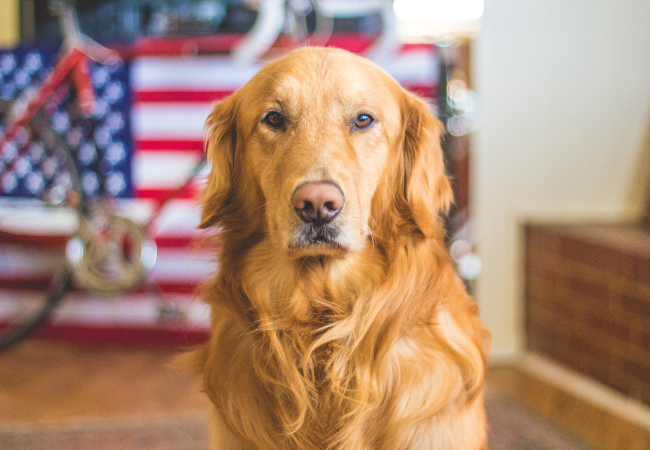Resources for Service Dog Teams
We hope that you find our website helpful and informative. If you have additional questions related to Saber Life Foundation for Independence please feel free to call 417-365-6917, or contact us. Below are some links to other websites you may find helpful.
- Assistance Dogs International, Inc. is a coalition of members representing organization and individuals training and placing Assistance Dogs. The purpose of ADI is to improve the areas of training, placement, and utilization of Assistance Dogs.
- International Association of Assistance Dog Partners A non-profit cross-disability organization representing people partnered with guide, hearing, and service dogs.
- U.S. Department of Justice ADA and Americans with Disabilities Act information, resources, and updates U.S. government Web site contains vast array of resources for individuals with disabilities, including information about health, housing, education, transportation, recreation and employment. See Commonly Asked Questions about service dogs in places of business. ADA Info Line: 800-514-0301 (voice); 800-514-0383 (TTY)
Workplace Accommodation Information | Public Access with an Assistance Dog Info | Employment Equal Opportunity Commission - Children with Disabilities offers information about advocacy, education, employment, health, housing, recreation, technical assistance, and transportation covering a broad array of developmental, physical, and emotional disabilities.
- Institute on Disability and Human Development is an online resource dedicated to promoting the independence, productivity and inclusion of people with disabilities into all aspects of society.
Please note: The links provided here are for your convenience only; no affiliation can be assumed through linking with a site. Saber Life Foundation makes no warranty expressed or implied as to the content, safety, product, or quality of any and all linked pages.

Education for the Community
Disability Etiquette
• When speaking with a person with a disability, speak directly to them and not to a parent, attendant, interpreter or assistance dog.
• Ask whether someone wants your help.
• Be mindful about physical contact. Don’t grab someone’s arm, don’t pat someone on the head, don’t touch their equipment.
• Don’t make assumptions about a person’s ability or inability to participate in an activity or do a task.
• Don’t ask about a person’s disability; they will share when they’re ready.
• Don’t wear heavy perfumes. Many people have sensitivities to chemicals.
• Always put the person first. They are a person with a disability, not a disabled person.
• Avoid outdated terms like crippled, handicapped, retarded, wheelchair bound or hearing impaired.
• Avoid using disempowering words like victim or suffers.
• If you have trouble understanding someone with a speech disability, ask them to repeat the part you didn’t understand.
• Use proper assistance dog etiquette. Make sure to acknowledge the person before acknowledging their assistance dog. And always ask before you pet. Remember the dog is working and we don’t want to distract.
Assistance Dog Etiquette
So often when we see Service dogs with their handlers, we’re immediately drawn to admire them and even pet them. However well intentioned, it’s important be aware of the rules surrounding working dogs. People with working dogs generally enjoy engaging with those drawn to their canine partners. Just remember to observe the tips below, and enjoy your interaction with the team.
• Don’t touch the dog without asking permission first. This is a distraction and may prevent the dog from tending to the human partner. Be sensitive to the fact the dog is working and may be in the middle of a command or direction from its human partner. Most dogs need to be told to be “released” from work mode to interact with someone.
• Please don’t feed the dog. It may be on a special diet. Food is the ultimate distraction to the working dog and can jeopardize the working assistance dog team.
• Speak to the person, not the assistance dog. Most handlers do not mind talking about assistance dogs and their dog specifically if they have the time. In fact, they often enjoy it!
• Do not whistle or make sounds to the dog as this again may provide a dangerous distraction.
• Never make assumptions about the individual’s intelligence, feelings or capabilities. Offers of help are appreciated, but ask first. Usually, the human/dog team can get the task done by themselves.
• Always approach an assistance dog calmly and speak to their human partner before touching or addressing the dog.

Public Access
All Saber Life Foundation’s teams are tested for public access. Saber Life Foundation administers the ADI certification test at the completion of the Team Training course, with certification. This is to ensure that graduate teams have appropriate levels of control with their assistance dogs in public settings.
- Information on service animals and the Americans with Disabilities Act as well as ADA information on public access for individuals with assistance dogs.
- Assistance Dogs International, Inc. is a coalition of members representing organizations and individuals training and placing Assistance Dogs. The purpose of ADI is to improve the areas of training, placement, and utilization of Assistance Dogs.
- International Association of Assistance Dog Partners, (IAADP) is a non-profit cross-disability organization representing people partnered with guide, hearing, and service dogs. Other resources:
- Information on the Fair Housing Act
- Information on the Air Carrier Access Act

